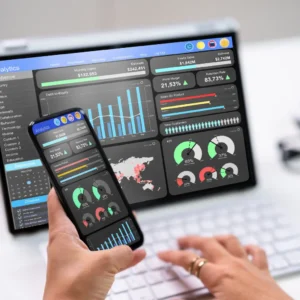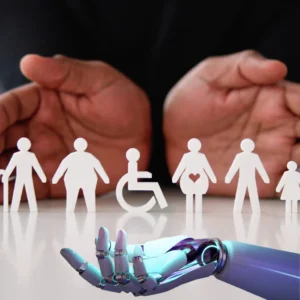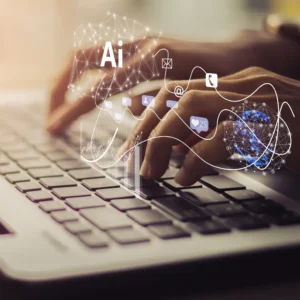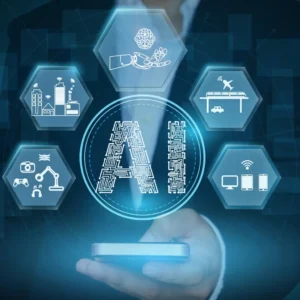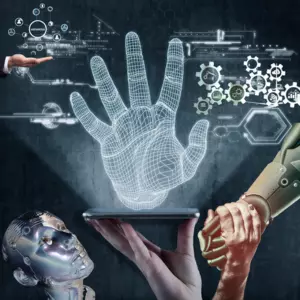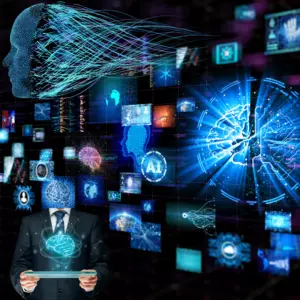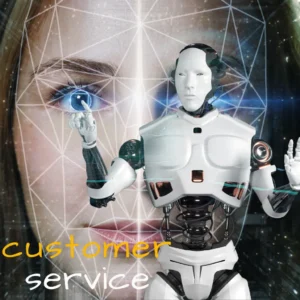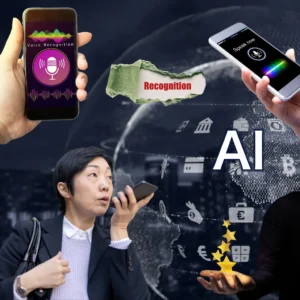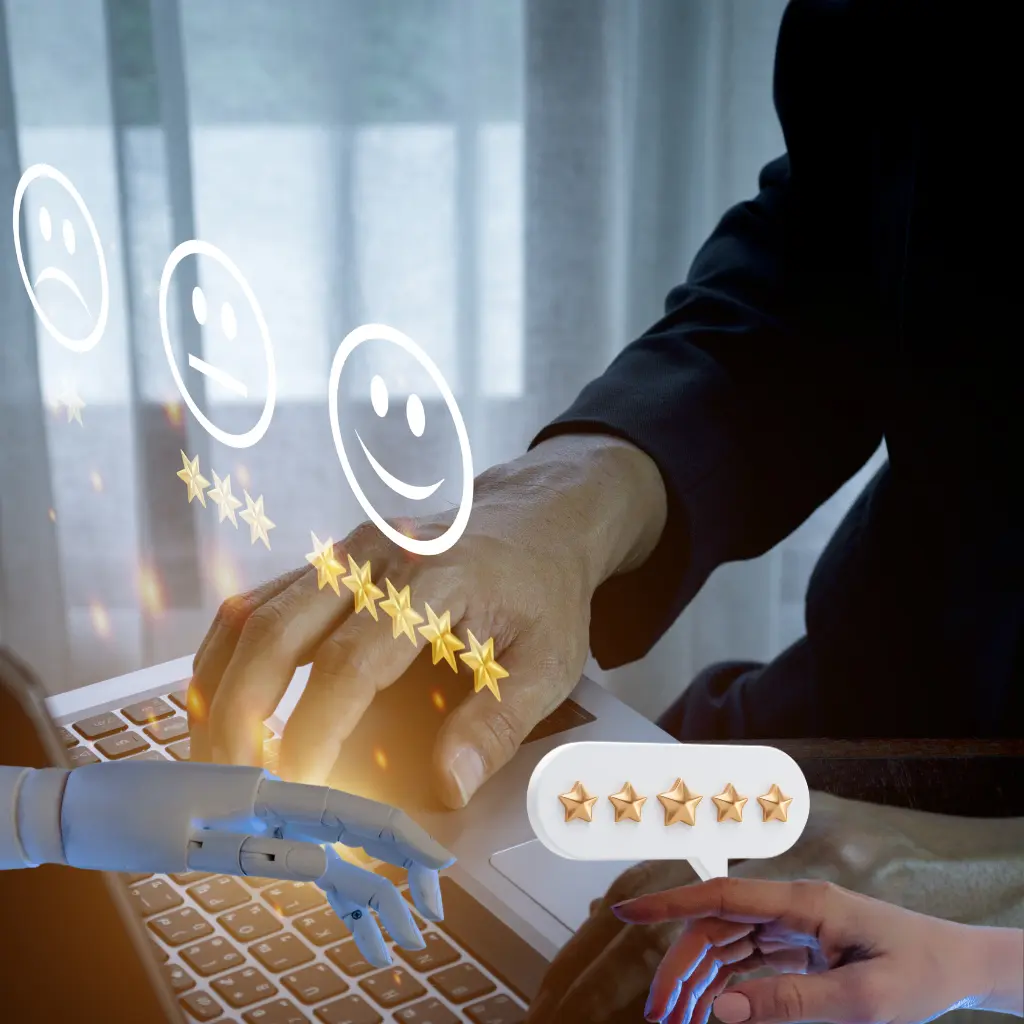
Revolutionizing Hospitality
AI Tools Transforming Customer Experience in Travel
Integrating AI tools for Customer Experience & Engagement is becoming paramount in the ever-evolving landscape of the travel and hospitality industry.
As an AI pioneer in this domain, the focus is on developing innovative solutions that redefine how organizations interact with and cater to their clientele.
From personalized recommendation engines to virtual concierges powered by Natural Language Processing (NLP) and Machine Learning, these tools aim to elevate guest satisfaction and streamline operational processes.
This discussion explores the business knowledge, software expertise, hardware requirements, training needs, integrations, comparative tools, and strategic recommendations for crafting and implementing these AI tools.
AI tools are becoming vital in the ever-changing travel and hospitality domain to improve customer interactions and service quality.
Table of Contents
5 AI tool ideas for the Customer Experience and Engagement in the Travel and Hospitality industry
Personalized Recommendation Engine:
- AI Domain: Machine Learning
- Benefit: Enhance customer satisfaction by providing customized recommendations for destinations, accommodations, and activities based on preferences and behaviour.
Chatbots for Booking Assistance:
- AI Domain: Natural Language Processing (NLP)
- Benefit: Improve customer service by implementing chatbots for instant booking assistance, itinerary customization, and FAQs.
Voice-Activated Room Service:
- AI Domain: Speech Recognition
- Benefit: Streamline customer experience by enabling voice commands for room service requests, information inquiries, and local recommendations.
Sentiment Analysis for Reviews:
- AI Domain: Natural Language Processing (NLP)
- Benefit: Improve your understanding of customer feedback by analyzing sentiment to detect positive and negative sentiments within reviews.
AI-powered Virtual Concierge:
- AI Domain: Natural Language Processing (NLP), Machine Learning
- Benefit: Enhance guest experience by providing a virtual concierge to assist with recommendations, reservations, and local insights.
AI Tools for Personalized Recommendation Engine
Business Knowledge:
- In-depth understanding of the travel and hospitality industry, including customer preferences, seasonal trends, and market dynamics.
- Familiarity with customer journey mapping to identify touchpoints for personalized recommendations.
- Knowledge of pricing strategies, accommodation standards, and activity offerings.
Software Knowledge:
- Proficiency in machine learning algorithms for recommendation engines, particularly collaborative filtering and content-based filtering.
- Natural language processing (NLP) skills to analyze customer reviews and feedback.
- Development skills for creating an intuitive and responsive user interface.
Hardware:
- Adequate computing power for processing large datasets and running machine learning algorithms.
- Consideration of cloud-based solutions for scalability and seamless updates.
Training:
- Training for staff on interpreting machine learning results and utilizing recommendation insights.
- Familiarization with system maintenance, monitoring, and ensuring data privacy.
Integrations:
- Integration with customer databases for personalized user profiles.
- Collaboration with booking platforms, weather APIs, and local event databases for real-time information.
- Connection with marketing tools for targeted promotions based on recommendations.
Comparative Tools:
- Analyze existing tools like personalized recommendation engines in the e-commerce and entertainment sectors.
- Assess CRM systems and chatbots used in the travel industry.
Recommendation:
- A tailored approach is recommended – build the core recommendation engine from scratch to align closely with industry nuances and then integrate it with existing solutions for efficiency.
Cost/Benefits Analysis:
- Building from scratch incurs initial costs but allows for customization and differentiation.
- Integrating with existing solutions reduces development time and costs, enhancing efficiency.
- Benefits include enhanced customer satisfaction, increased bookings, and improved customer engagement.
In summary, developing AI tools for Customer Experience & Engagement in the Travel and hospitality domain demands a balance of industry-specific business knowledge and advanced software capabilities. A recommendation engine, customized to the unique demands of the travel industry, can be efficiently created by building the core from scratch and integrating it with existing solutions. This strategy ensures a competitive advantage, aligns closely with industry needs, and offers a favourable cost/benefit ratio in the dynamic landscape of AI tools for Customer Experience & Engagement in the Travel and hospitality domain.
AI Tools for Chatbots for Booking Assistance
Business Knowledge:
- Understanding the travel and hospitality industry, including customer booking processes, common queries, and industry-specific terms.
- Familiarity with customer service dynamics, anticipating user needs during the booking process.
- Knowledge of regulatory and compliance aspects related to travel bookings.
Software Knowledge:
- Proficiency in Natural Language Processing (NLP) for understanding and generating human-like responses in customer interactions.
- Development skills for building conversational interfaces and integrating with booking systems.
- Expertise in backend systems to handle data securely and integrate with other tools.
Hardware:
- Adequate computing power to handle concurrent chatbot interactions.
- Consideration of cloud-based solutions for scalability and flexibility in managing peak booking periods.
Training:
- Training for staff on monitoring and optimizing chatbot interactions.
- Regular updates and retraining to improve language understanding and response accuracy.
Integrations:
- Integration with booking platforms for real-time availability checks and reservation confirmations.
- Connection with CRM systems to access customer profiles and personalize interactions.
- Collaboration with payment gateways for secure and seamless transaction processing.
Comparative Tools:
- Analyze existing platform chatbot tools, such as those used in e-commerce and customer support.
- Evaluate chatbots designed explicitly for the travel industry.
Recommendation:
- A customized approach is recommended – build the chatbot system from scratch to align closely with the unique processes and language of the travel and hospitality industry.
Cost/Benefits Analysis:
- Building from scratch involves initial development costs but allows for a tailored solution that meets industry-specific requirements.
- Buying off-the-shelf solutions might be quicker but may only partially cater to the intricacies of the travel and hospitality domain.
- Benefits include improved customer service, reduced workload on customer support staff, and enhanced customer engagement, contributing to overall customer experience and satisfaction with AI tools for Customer Experience & Engagement in the Travel and hospitality domain.
AI Tools for Voice-Activated Room Service
Business Knowledge:
- In-depth understanding of hospitality operations, including room service processes, guest preferences, and local recommendations.
- Knowledge of customer behaviour and expectations in the travel and hospitality industry.
- Awareness of regulatory and privacy considerations related to voice-activated services.
Software Knowledge:
- Expertise in Speech Recognition technology for accurately interpreting and responding to voice commands.
- Development skills for creating a seamless and user-friendly voice interface.
- Integration capabilities with existing hotel management systems and databases.
Hardware:
- Voice-activated devices equipped with sensitive microphones for clear command recognition.
- Adequate computing power for real-time processing of voice commands.
- Consideration of privacy measures and data security protocols.
Training:
- Staff training on monitoring and managing voice-activated interactions.
- Ongoing training for improving speech recognition accuracy and updating the system with new local recommendations.
Integrations:
- Integration with hotel management systems for efficient handling of room service requests.
- Collaboration with local databases to provide accurate and up-to-date recommendations.
- Compatibility with other smart devices in hotel rooms for a seamless experience.
Comparative Tools:
- Evaluate existing voice-activated concierge systems in the hospitality industry.
- Analyze speech recognition tools used in other domains for potential adaptation.
Recommendation:
- A combination of buying and customizing existing solutions is recommended. Start with a reliable voice recognition platform and customize it to align with the unique needs of the travel and hospitality industry.
Cost/Benefits Analysis:
- Buying and customizing existing solutions can be more cost-effective and time-efficient than building from scratch.
- Benefits include enhanced customer experience, increased operational efficiency, and positive brand differentiation in AI tools for Customer Experience & Engagement in the Travel and hospitality domain. Investment in a tailored voice-activated room service tool can improve customer satisfaction, potentially increasing customer loyalty and positive reviews.
AI Tools for Sentiment Analysis for Reviews
Business Knowledge:
- Understanding the travel and hospitality industry, including common customer pain points, service expectations, and industry-specific language.
- Familiarity with customer feedback trends and the ability to contextualize sentiments within the travel domain.
- Awareness of the impact of sentiment on customer loyalty and brand reputation.
Software Knowledge:
- Proficiency in Natural Language Processing (NLP) for sentiment analysis, including sentiment classification algorithms.
- Data processing skills to handle large volumes of reviews from diverse platforms.
- Dashboard development for visualizing sentiment trends and insights.
Hardware:
- Adequate computing power for processing and analyzing large datasets of customer reviews.
- Cloud-based solutions for scalability and flexibility in managing varying workloads.
Training:
- Staff training on interpreting sentiment analysis results and translating them into actionable insights.
- Continuous model refinement based on evolving language trends and customer feedback patterns.
Integrations:
- Integration with review platforms, social media, and customer feedback systems to gather data.
- Collaboration with customer relationship management (CRM) systems for a holistic view of customer sentiment.
- Compatibility with reporting tools for seamless communication of insights.
Comparative Tools:
- Evaluate existing sentiment analysis tools in the market tailored for the travel and hospitality industry.
- Analyze general sentiment analysis tools and their adaptability to the unique language of the travel domain.
Recommendation:
- A customized approach is recommended – build the sentiment analysis tool from scratch to align closely with the travel and hospitality industry’s nuanced language and specific needs.
Cost/Benefits Analysis:
- Building from scratch allows for customization, ensuring the tool understands industry-specific sentiments accurately.
- While it incurs initial development costs, the long-term benefits include improved customer satisfaction, quicker response to issues, and enhanced brand reputation in AI tools for Customer Experience & Engagement in the Travel and hospitality domain. Investing in a tailored sentiment analysis tool can contribute significantly to proactive customer engagement and strategic decision-making in the highly competitive Travel and hospitality sector.
AI Tools for AI-powered Virtual Concierge
Business Knowledge:
- In-depth travel and hospitality industry knowledge, including guest preferences, local attractions, and common guest inquiries.
- Understanding the customer journey and touchpoints where a virtual concierge can enhance the guest experience.
- Familiarity with hotel operations to seamlessly integrate the virtual concierge into existing workflows.
Software Knowledge:
- Proficiency in Natural Language Processing (NLP) for understanding guest inquiries and generating human-like responses.
- Machine learning expertise to continuously improve the virtual concierge’s ability to provide personalized recommendations.
- Development skills for creating an intuitive and responsive user interface.
Hardware:
- Adequate computing power for real-time NLP and machine learning processing.
- Consideration of cloud-based solutions for scalability and accessibility.
Training:
- Staff training on monitoring and optimizing the virtual concierge’s interactions.
- Continuous training to keep the machine learning models updated with the latest trends and local insights.
Integrations:
- Integration with hotel management systems for access to reservation information and room status.
- Collaboration with local databases, event calendars, and booking platforms for real-time information.
- Compatibility with other smart devices in hotel rooms for seamless guest interactions.
Comparative Tools:
- Evaluate existing virtual concierge tools in the market, considering their adaptability to the unique needs of the travel and hospitality industry.
- Analyze chatbots and AI-powered assistants used in other sectors for potential customization.
Recommendation:
- A combination of buying and customizing existing solutions is recommended. Start with a reliable virtual concierge platform and customize it to align with the specific needs of the travel and hospitality industry.
Cost/Benefits Analysis:
- Buying and customizing existing solutions can be more cost-effective and time-efficient than building from scratch.
Benefits include enhanced guest experience, improved operational efficiency, and positive brand differentiation in AI tools for Customer Experience & Engagement in the Travel and hospitality domain. Investing in an AI-powered Virtual Concierge personalized to the customer can improve satisfaction, repeat business, and positive word-of-mouth in the competitive hospitality industry.

Arindam Roy
An Automation Consultant with 25+ years of IT Experience
Conclusion on AI Tools for the Customer Experience and Engagement in the Travel and Hospitality industry
In conclusion, developing and integrating AI tools for Customer Experience & Engagement in the Travel and hospitality domain presents an exciting frontier for innovation and improved service delivery.
Leveraging NLP and ML can transform guest interactions and elevate satisfaction while streamlining operations. The synergy of comprehensive business knowledge in the travel industry and sophisticated software capabilities ensures the alignment of these tools with the unique demands of hospitality.
The travel and hospitality industry is implementing personalized recommendation engines, voice-activated room services, sentiment analysis for reviews, and AI-powered virtual concierges. The target is to create tailored solutions that meet the sector’s unique needs.
Integrating these tools seamlessly into existing workflows, along with continuous training and refinement, is essential for optimizing their performance and staying attuned to evolving customer preferences.
While considering build-from-scratch, buying off-the-shelf, or combining both approaches, the key lies in striking a balance that maximizes efficiency, customization, and cost-effectiveness. The benefits of these AI tools are extensive, ranging from enhanced customer satisfaction and loyalty to improved operational efficiency and brand differentiation. With the travel and hospitality industry continuing to embrace technological advancements, the strategic integration of AI tools is pivotal in shaping the future of customer experience and engagement.
Related Articles
- AI tools for Emerging Technologies in Travel and Hospitality
- AI tools for Data Analytics and Insights in Hospitality
- AI Tools for Collaboration and Communication in Hospitality
- AI tools for Accessibility and Inclusivity in Hospitality
- AI tools for Marketing and Sales in Hospitality and Travel
- AI Tools for Operations and Efficiency in Hospitality
- AI Tools for Regulatory Compliance and Risk Management
- AI Tools for Safety and Security in Hospitality and Travel
- AI Tools for Sustainability and Environmental Impact
- AI tools in the Travel and Hospitality domain


